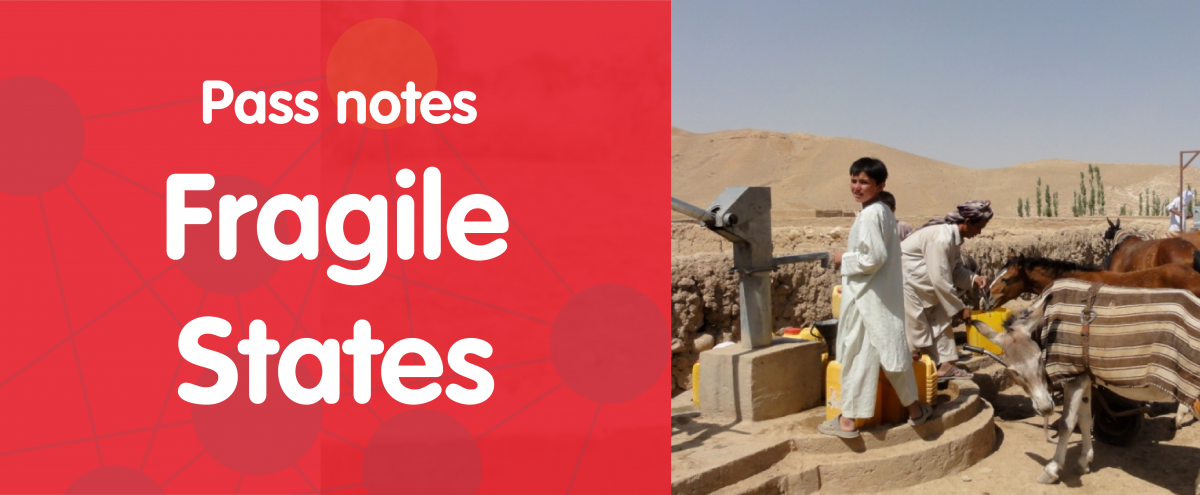
I've had a few of those after a big night out... Not that kind of fragile state.
Published on: 06/03/2019
Oh. So what are we talking about? A fragile state has several attributes and state fragility may include a loss of physical control of its territory, the erosion of legitimate authority to make collective decisions, an inability to provide reasonable public services and the inability to interact with other states as a full member of the international community amongst others.
And public services would include...? Water, sanitation and hygiene provision, yes.
Ah, I see, and how can you provide sustainable water and sanitation in a fragile state? Precisely
No, I'd like to know! I'm glad you asked, as its garnering increased attention from all WASH stakeholders. Whilst the key building blocks for WASH service have been clearly identified, a wide range of fragile contexts challenge the relevancy and adaptability of such models.
Sounds like it will be a big challenge. Yes, so the questions to be addressed are how to take the principles and learning from fragile states and adapt the building block conceptual framework
The what now? A theoretical structure of assumptions, principles and rules that holds together the ideas comprising a broad concept – in this case, the building blocks IRC says are needed for safe and sustainable WASH delivery.
Got it. Carry on. We also need to discuss where investment should be made to strengthen the systems approach in fragile context
Sounds tricky. Yes, building WASH systems in a fragile state can definitely be a challenge
OK, so, where can I learn more? Well, the opening side session at the symposium will define what a fragile state is, and what the risks and benefits in applying a conceptual framework for systems strengthening.
Some of which we've just been talking about! Yes, and then we'll look at the ambition and reality of achieving systems strengthening in a fragile state, what tools and expertise are needed. We'll then dive into some examples from Haiti and Democratic Republic of Congo on economic and market based approaches, and then from Ethiopia and Central African Republic on monitoring and information systems. Finally we'll explore different economic approaches for developing sustainable services in communities using life-cycle costing.
Do say: Tell me more about innovative solutions for systems building in fragile states
Don't say: Pass me the paracetamol
At IRC we have strong opinions and we value honest and frank discussion, so you won't be surprised to hear that not all the opinions on this site represent our official policy.